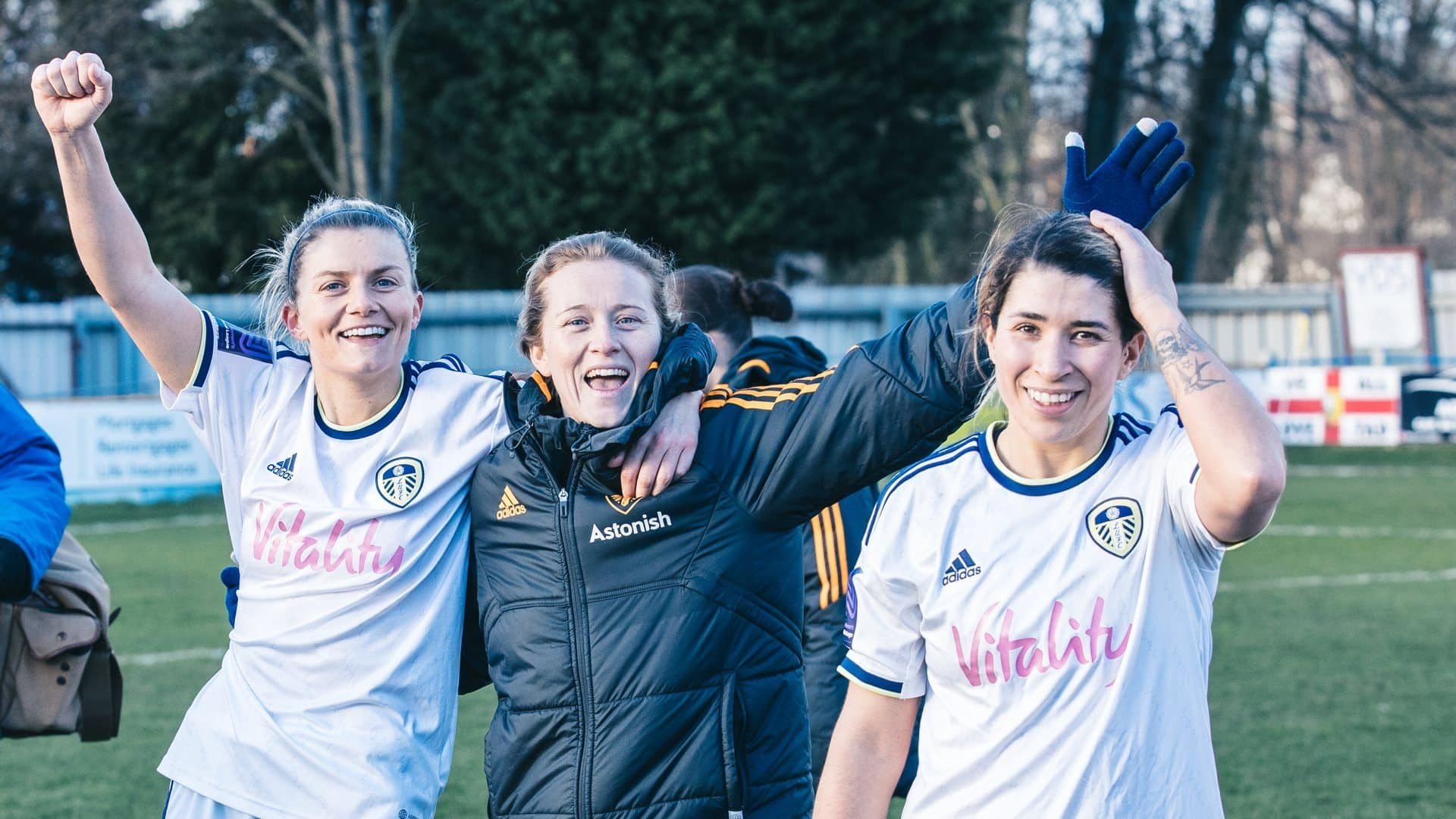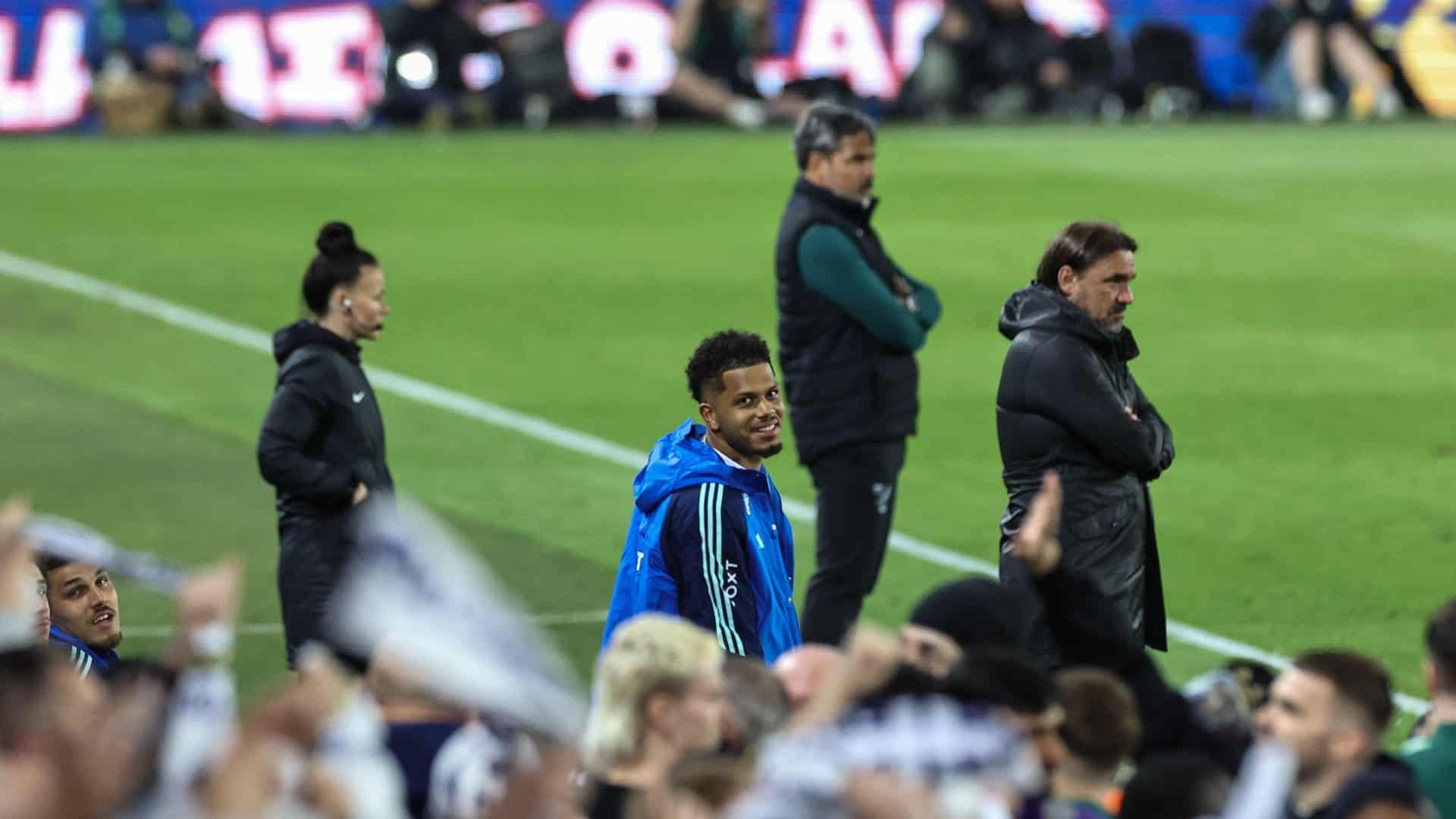
This Sunday, Leeds United Women are taking on Stourbridge for the FAWNL Plate at the Armco Arena in Solihull. It’s the club’s first national final for almost a decade, but they’ll have one player in the dressing room who remembers the tension from last time, when Leeds played Aston Villa for the Premier League Cup in 2013.
Rebekah Bass remembers stepping out in front of a huge crowd of mostly Leeds fans at Bootham Crescent and thinking, “Blooming heck, these people are all here to see us.” The club had laid on an Elland Road breakfast before sending the team to York on a coach. Head coach Andy Burgess, a shorts-and-trainers-man to his core, had put a suit on for the occasion.
The VIP treatment was more than the norm, because it was a big game for Leeds. A year earlier, they had reached the final but lost to Sunderland. At the time of the 2013 final, they had three league games left to try catching the Mackems, who were on course to pip them to the title for the second season running. All the while, Leeds were awaiting the result of their application to join the new Women’s Super League 2. In 2010, United’s failed attempt to join the WSL had led to a mass exodus of the team’s talents, and the implications of a second unsuccessful bid were no less catastrophic.
“This could sound the death knell for the club, our Centre of Excellence and indeed the future of the female playing section here if we are not successful in getting into the new league,” said Mick Ferguson, then director of the Leeds United Foundation.
If the moment called for do-or-die, then Bass was made for the moment. She was eighteen and a Leeds United fan through and through, beginning to make a name for herself with shows of fearless resilience.
“I was that kid you could send up in the air and I would just keep coming back. I was young, I was athletic and I was just jumping about for everything. You could have kicked me, done anything, and I would have kept running.
“I got battered off my brother when I was younger and we were playing football together, so I was used to it. I had it all when I was younger. That was my game of football. I’ve always been about the floor — whether I’m tackling or getting tackled, you’re straight back up again. I’ve always played in white at Leeds, and my kit has never been clean. Never ever.”
Bass was named as a substitute for the final, but the pre-match stakes had only increased by half-time. The game was goalless, and Burgess hoped Bass might breathe some life into the Whites’ attack when he brought the teenager off the bench.
She remembers thinking, “Wow, they’re asking me to do quite a lot here.” It wasn’t the occasion or the crowd that intimidated her, but the height of Villa’s centre-halves. But although they were huge, the pair couldn’t keep pace with the zippy winger — “I was a proper young whippersnapper” — and Bass simply got up each time they kicked her.
United couldn’t finish any of their chances and the deadlock remained unbroken through ninety minutes and extra time. Bass hadn’t been cowed by those big centre halves. She’d taken a kicking, but put herself forward to take a spot-kick in the shoot-out, despite being one of the youngest players on the pitch.
“We got our numbers for who was taking the penalties when, and I was meant to be number five. Bloody hell. I was like, ‘Oh my God, this is make or break, this’.
“Just before the third penalty Claire Sykes, who was the captain at the time, came up to me and said, ‘I’m going to take the last penalty’. She was a senior player, the captain — I was never going to argue with her. And so I said, ‘absolutely fine’.”
The pressure was taken off Bass, but Villa had their own eighteen-year-old hero at Bootham Crescent. Megan Walsh, who now wears the no.1 shirt for WSL side Brighton and Hove Albion, saved Sykes’ penalty to win the cup for Villa.
“It was devastating,” says Bass. “We’d worked hard to get to where we were and had such a good experience. I think losing on pens is the worst way to lose. It’s absolutely horrendous.”
Despite the disappointment, Bass still counts the final as third-best of her memories from a rich playing career, behind getting an England call-up and winning the WSL with Sunderland. As well as enjoying the experience, there was a lot to gain from losing.
“It was tough. I think it made me a lot more ‘head-screwed-on’. You have to go through those horrendous things, don’t you, to get to the strengths where you are now.”
Today, Bass is swallowing another hefty dose of character-building medicine. In January, she was wearing the armband while Leeds were closing out a 3-1 comeback win against third-tier Stoke City in the FA Cup. The draw for the next round had already been made, and a mouth-watering fourth round tie against Arsenal was Leeds’ reason for holding on.
With ten minutes left, an innocuous challenge forced Bass off the pitch with a knee problem. Her team-mates were worried and the physio was worried, but she was convinced it was nothing, that the problem would be wrapped up in time for her to leave a mark on Stina Blackstenius.
That illusion lasted until the club doctor explained the damage. Bass had snapped her anterior cruciate ligament, her medial collateral ligament, and her meniscus — which had flipped upside down and lodged in her kneecap — while her lateral collateral ligament got away relatively lightly — not snapped, only torn.
“It felt like the whole world was crashing down. And I was like, okay, this is not going to happen. Okay, this is not going to be a couple of weeks. This is going to be a long road to recovery.
“Do you know what the annoying thing is? Some of the tackles I’ve made in my career, I’ve got up and thought, ‘how have I come out of that with nothing?‘ And this one, I cleared the ball, a girl put a tiny bit of pressure on me — nothing crazy — I’ve just landed badly, my knee’s dislocated and snapped everything on its way out.
“That was something I was fuming about when I first did it. I was thinking, how have I managed all these years snapping people and getting snapped, and then one daft clearance and I’m absolutely battered from it.”
Bass missed out on that once-in-a-career Gunners match and will watch from the sidelines as United fight for the Plate on Sunday. But having seen it all from a young age, and with years of experience under her belt, she is ready to play a vital role in preparing her team-mates to do battle.
“There’s young players in the team who have probably played in finals before, but not necessarily finals this big. So it is pressure, and people get nervous. But now as a bit more of an experienced member of the team, I know just to keep the levels low, and get people up when they need to be.
“People react differently. I like being lively and in everyone’s face — that’s when I know I’m ready. But some people, they go about it on their own and they’re quiet. So it’s about knowing your players, and knowing which way to take them.”
Fortunately, Bass isn’t the only one of the squad to have experienced the mentality-shifting power of falling at the final hurdle. Last season, an injury-time equaliser by Kathryn Smith handed United a lifeline in the County Cup final against Brighouse, but they missed out on penalties. It’s a memory players will be calling upon in Solihull on Sunday.
“The best thing to do in the team talk before the game is to kind of remember those moments, remember how awful it was. We worked so hard to get there and then at the end of the day, we didn’t come away with anything.
“Do you want to feel that again, or do we want to go and feel the feeling of lifting that trophy at the end?”
Ten years after their Premier League Cup final defeat to Villa, Leeds still have questions to answer regarding the women’s pyramid and their place within it. With a string of outstanding performances in knockout contests, Rick Passmoor’s side have seen off third-tier opponents and demonstrated their potential to compete at a higher level. But they’ve been unable to match the consistent performances of runaway league leaders Durham Cestria and Newcastle United in the FAWNL Division One North, putting pyramid progression on hold until the next campaign.
The chance of a trophy is now, though, and has been a long time coming. At the Plate final on Sunday, if Leeds win their first silverware since 2010, Rebekah Bass will be bouncing, meniscus or no meniscus.
“Everyone everywhere knows that I am a massive Leeds United fan. I bleed Leeds United. My house is like a shrine to Leeds United. It’s quite embarrassing, to be honest. But to win any trophy at the club that you’ve grown up supporting, as captain of the club that you love, would be the best thing in the world. There’s nothing really to me that can beat that.
“I’ve played in quite a few teams in different leagues and different countries, and I’ve never had a team morale like we’ve got at Leeds United. I’m playing with four of my best friends, it’s absolutely class. To win would be unbelievable.” ⬢

© 2009-2023 The Square Ball Media Limited | All Rights Reserved | Contact us